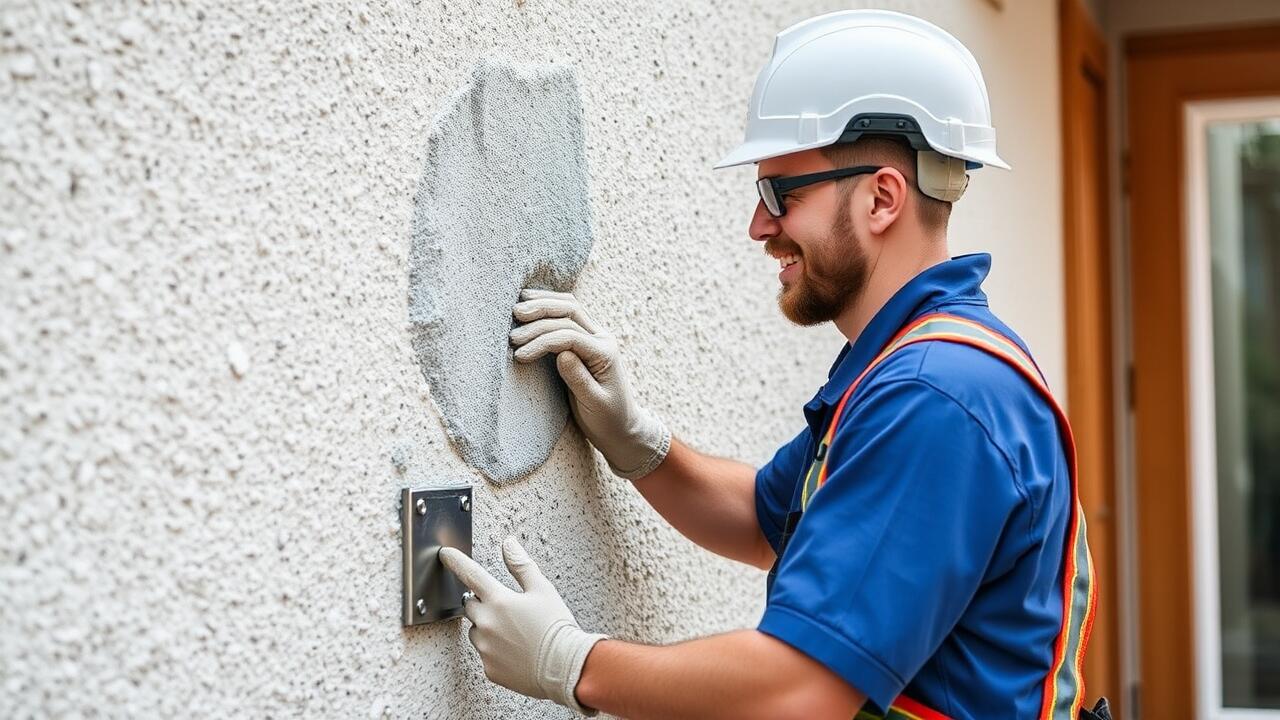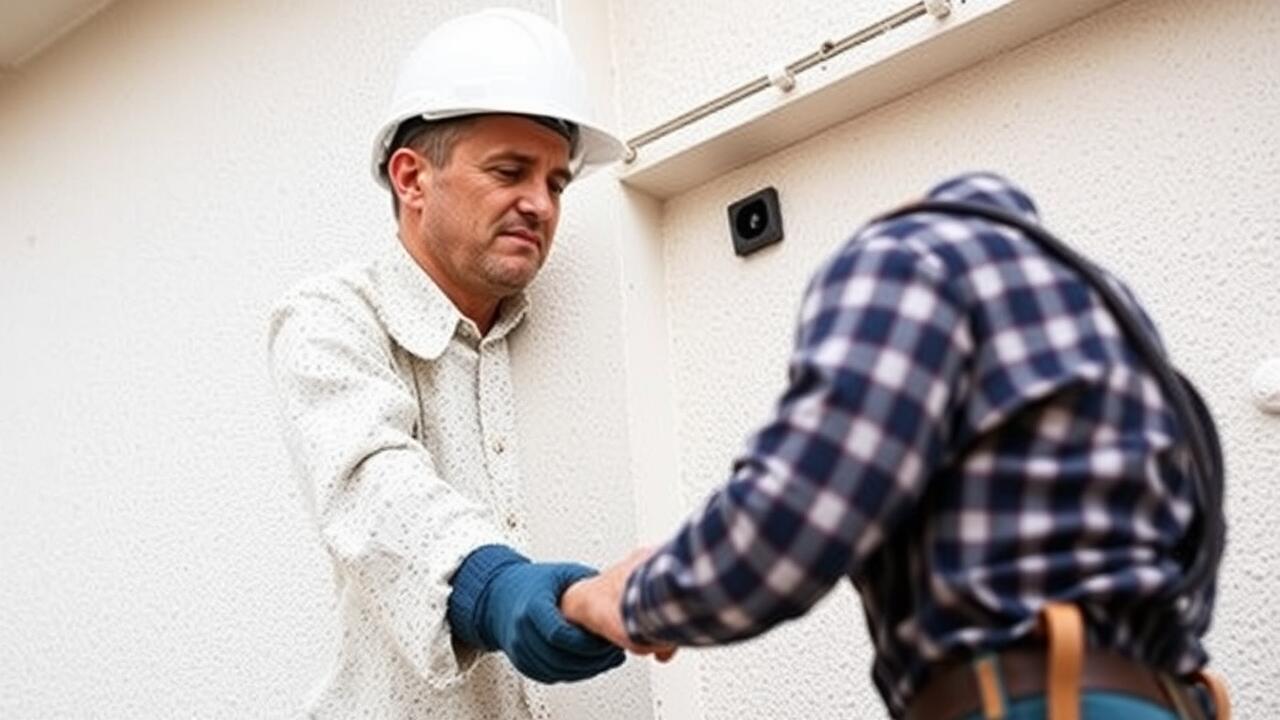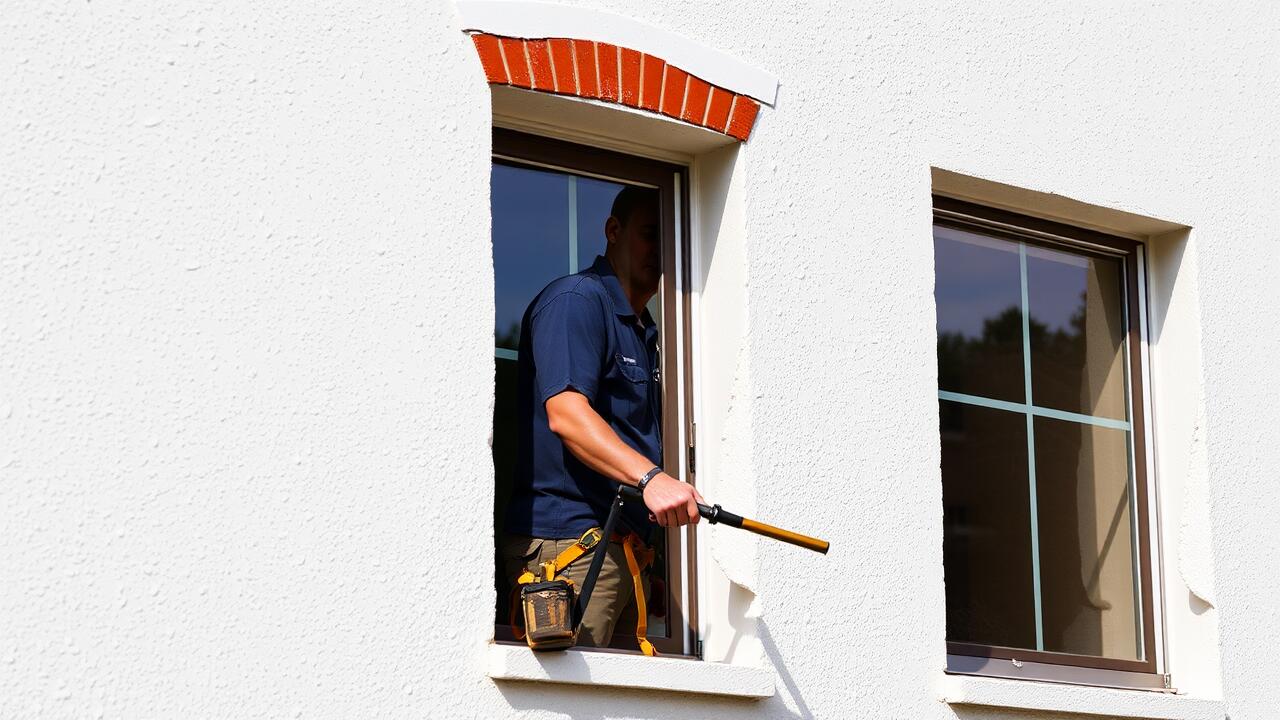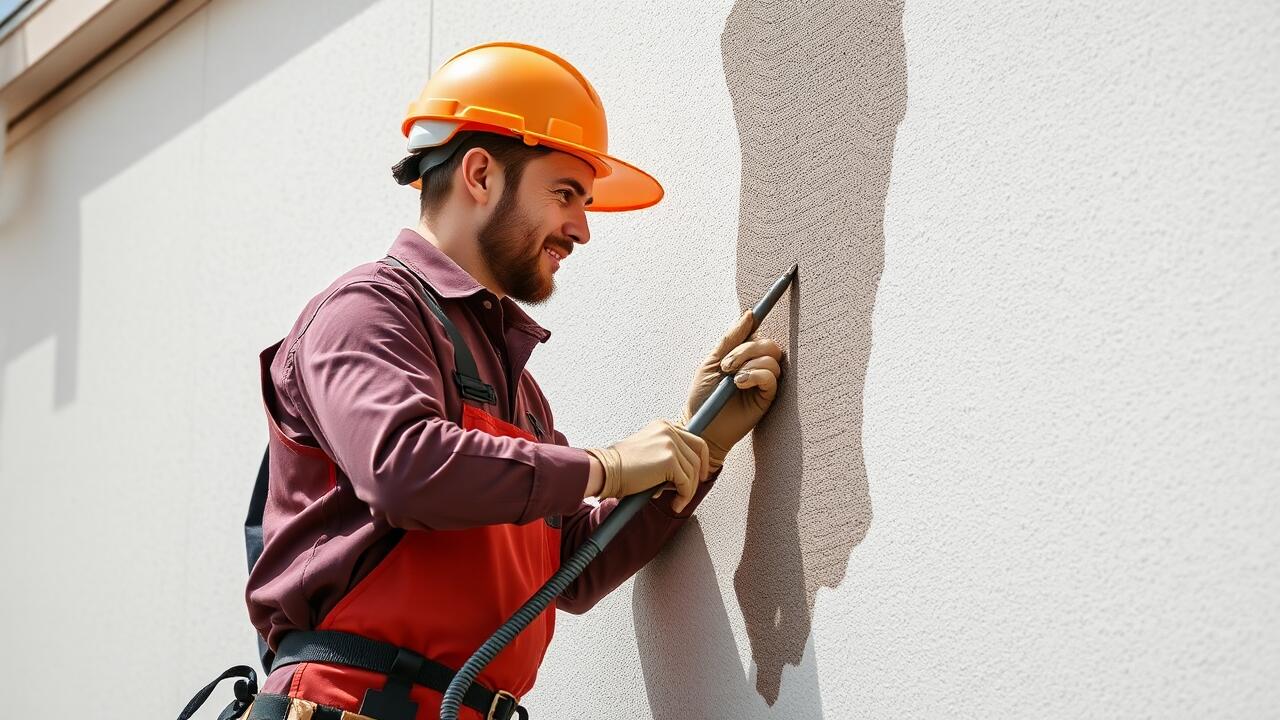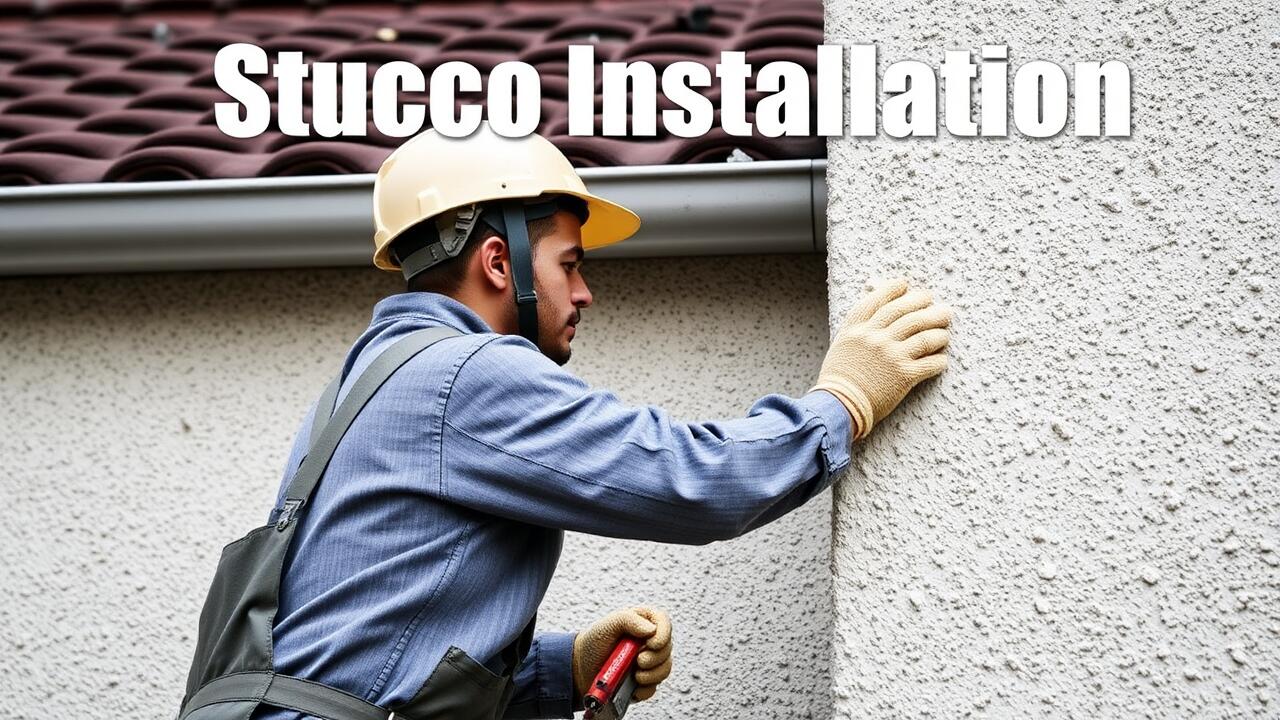
Energy Efficiency and Insulation with Stucco
Stucco offers considerable advantages in energy efficiency and insulation for homes. Its dense material can help maintain stable indoor temperatures by reducing heat transfer. This characteristic can lead to lower energy bills, especially in climates with extreme temperature variations. Homeowners often report increased comfort levels year-round due to stucco's ability to regulate temperature effectively.
Choosing "Stucco Installation near me" provides the opportunity to enhance your home's energy performance while adding aesthetic appeal. The insulation properties of stucco work synergistically with various insulation methods, leading to an overall improved energy profile. Additionally, the application of quality stucco can contribute to a home's sustainability by lowering energy consumption over time.
Benefits of Stucco for Energy Savings
Stucco is recognized for its ability to enhance energy efficiency in homes. Its thick exterior serves as a barrier against extreme temperatures, helping to keep indoor spaces cooler during summer and warmer in winter. This natural insulating property can lead to reduced heating and cooling costs over time. Homeowners increasingly look for “Stucco Installation near me” as they seek to take advantage of these energy-saving benefits.
Additionally, stucco's durability adds to its energy efficiency. It can withstand various weather conditions without compromising its insulating capabilities. The material is also resistant to mold and mildew, which can further improve indoor air quality. Investing in stucco can result in long-term savings on energy bills while ensuring a comfortable living environment.
Environmental Considerations of Stucco
Stucco is increasingly recognized for its potential environmental benefits. As a natural material made primarily from cement, sand, and lime, it offers a relatively low-impact option compared to more synthetic alternatives. The longevity of stucco contributes to sustainability, as its durability can reduce the need for frequent replacements. Properly applied stucco can withstand various weather conditions, minimizing the need for additional resources over time. When considering options for your home, searching for "Stucco Installation near me" can connect you with local contractors experienced in eco-friendly practices.
Additionally, stucco can help with energy efficiency, which indirectly supports environmental sustainability. Its thickness provides natural insulation, reducing the need for additional heating and cooling. This can lead to lower energy consumption and smaller carbon footprints. Some manufacturers offer stucco mixes that incorporate recycled materials, enhancing its eco-friendliness. Overall, selecting stucco as an exterior option may serve both aesthetic and environmental goals, making it a viable choice for conscientious homeowners.
Sustainability and Eco-friendliness of Stucco
Stucco is often praised for its eco-friendliness, primarily due to its composition of natural materials such as sand, cement, and lime. These ingredients are abundant and can be sourced locally, which reduces transportation emissions and promotes the use of regional economies. Additionally, stucco's durability minimizes the need for frequent replacements, leading to less waste in landfills over time. Using stucco as an exterior finish can contribute to a more sustainable building approach by lowering the overall environmental impact.
When considering stucco for your home, it is essential to also look for local contractors offering "Stucco Installation near me." This not only supports local businesses but can also decrease the carbon footprint associated with long-distance transport. The energy efficiency of stucco further enhances its sustainability profile, as homes with stucco exteriors can benefit from reduced energy consumption for heating and cooling. By choosing stucco, homeowners can enjoy a material that aligns with eco-conscious building trends while still maintaining an attractive aesthetic.
Comparing Stucco to Other Exterior Options
When considering exterior options for home improvement, stucco stands out among popular materials like vinyl siding, wood, and brick. Its multi-layered application not only provides a distinct aesthetic but also enhances energy efficiency, which can lead to long-term savings on utility bills. While vinyl siding may offer a lower upfront cost and wood can provide a classic charm, stucco's durability and low maintenance needs often make it a more appealing long-term investment.
For homeowners searching for local contractors, searching for "Stucco Installation near me" can yield numerous qualified professionals able to provide this service. While exploring alternatives, it is essential to weigh the benefits and drawbacks of each material. For instance, brick offers excellent durability and insulation but comes with a higher price tag. Conversely, vinyl siding may be cost-effective but tends to lack the energy-saving benefits that stucco offers. Balancing these factors can help determine the best choice for your home.
Pros and Cons of Alternative Materials
When comparing stucco to alternative materials like vinyl siding, wood, or brick, it’s important to consider the distinct pros and cons of each. Vinyl siding is often praised for its low maintenance and wide range of colors, while wood can offer a classic aesthetic but requires regular upkeep to prevent rot and pests. Brick typically boasts durability and timeless appeal, but it can be much more expensive and complicated to install. Each material has its unique strengths and weaknesses, making the choice largely dependent on individual preferences and environmental considerations.
Stucco stands out due to its exceptional energy efficiency and durability, providing a solid barrier against temperature fluctuations. However, it is essential to remember that stucco can be susceptible to cracking, especially in areas with significant temperature changes. Homeowners considering different options might search for "Stucco Installation near me" to gauge local availability and expertise. Ultimately, the decision hinges on weighing the initial costs, maintenance requirements, and long-term benefits of each material in relation to specific project goals.
FAQS
What are the main benefits of using stucco for energy savings?
Stucco provides excellent insulation, which helps to reduce energy consumption by maintaining a consistent indoor temperature. Its dense structure can minimize heat loss in winter and keep homes cooler in summer, leading to potential savings on energy bills.
Is stucco an environmentally friendly building material?
Yes, stucco can be considered environmentally friendly. It is made from natural materials like sand, cement, and lime, and can be sourced locally, which reduces transportation emissions. Additionally, stucco's durability means it requires less frequent replacement, contributing to sustainability.
How does stucco compare to other exterior materials in terms of cost?
While stucco may have a higher initial installation cost compared to some alternatives like vinyl siding, it often proves to be more cost-effective over time due to its longevity and low maintenance requirements. Homeowners should consider both upfront and long-term costs when making a decision.
What are some downsides of choosing stucco for home exteriors?
Some potential downsides of stucco include its susceptibility to cracking if not properly installed or maintained, as well as the need for periodic painting or sealing. Additionally, in areas with high moisture, stucco can be prone to issues like mold or mildew if not properly maintained.
How long can I expect stucco to last?
Stucco is known for its durability and can last anywhere from 50 to 80 years with proper installation and maintenance. Regular inspections and timely repairs can help extend its lifespan even further.
